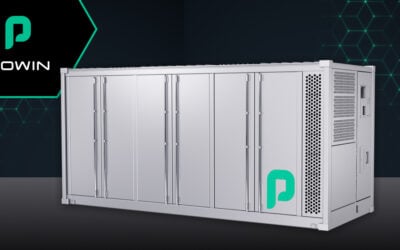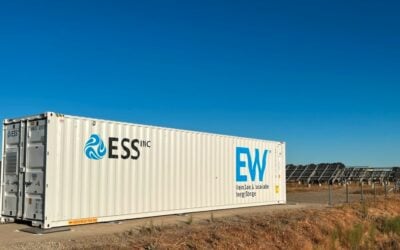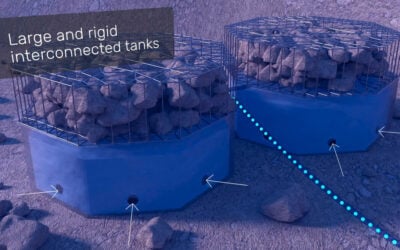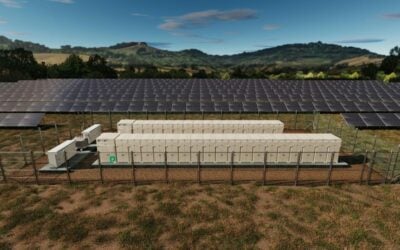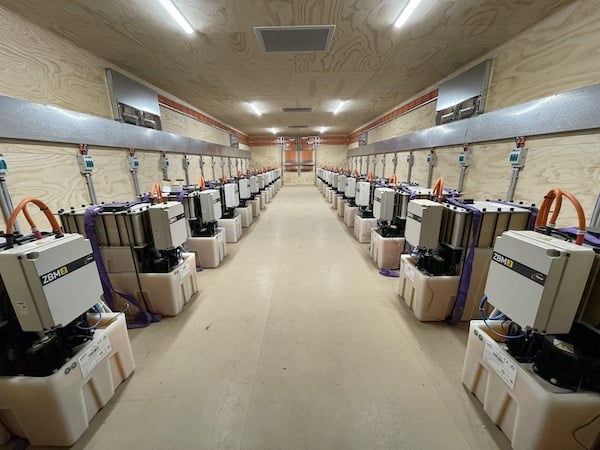
The Australian Renewable Energy Agency (ARENA) is funding trial deployments of two different non-lithium battery technologies at microgrids in Western Australia.
The trial is aimed at assessing the suitability of sodium-sulfur (NAS) and zinc-bromine hybrid flow batteries to help integrate growing shares of rooftop solar PV onto local electricity networks, ARENA said this morning (25 March).
Enjoy 12 months of exclusive analysis
- Regular insight and analysis of the industry’s biggest developments
- In-depth interviews with the industry’s leading figures
- Annual digital subscription to the PV Tech Power journal
- Discounts on Solar Media’s portfolio of events, in-person and virtual
Or continue reading this article for free
The agency will provide AU$2.85 million towards the expected project cost of AU$5.7 million for Horizon Power, an energy company owned by the state government of Western Austalia, to install the systems at two remote sites through ARENA’s Regional Microgrids Program.
The total value of the programme, launched in August 2023, is AU$125 million, and it runs until December 2025.
Its aims include facilitating innovation and accelerated deployment of microgrid technologies that can enable renewable energy integration, increasing the resilience of electricity supply in rural and remote areas and – in a separate stream of the programme – aiding indigenous First Nation communities to benefit from microgrid technologies.
ARENA said that while lithium-ion (Li-ion) battery storage systems have been installed across Horizon Power’s networks to facilitate renewable energy uptake and add resiliency in remote areas, a need for rugged, longer duration storage technologies, has also been identified.
The trial will see a 100kW/400kWh zinc-bromine flow battery system deployed at a microgrid in the town of Nullagine, in the historic WA gold mining region of the Pilbara, and a 250kW/1,450kWh NAS battery system at the coastal town of Carnarvon.
While the agency described the trial as a test of two long-duration energy storage (LDES) technologies, and both technologies are touted as suitable for applications requiring 6-hour discharge duration or more, the project will assess other specific characteristics of the batteries, such as their ruggedness in extreme heat conditions.
Technologies could become ‘important part of energy mix in regional communities’
The sodium-sulfur battery tech has been developed by Japanese company NGK and deployed worldwide at sites for over 20 years, totalling around 5GWh of cumulative installs. NGK has partnered with the energy arm of German chemicals company BASF for the distribution and ongoing commercialisation of the technology.
Recent project wins for the pair include a first order in Eastern Europe to a site in Bulgaria. The technology also went on trial elsewhere in Western Australia a few months ago at a copper mine owned by resources company IGO and backed through the Future Battery Industries Cooperative Research Centre (FBICRC), formed by industry, academia and the Australian government.
NAS batteries can operate at high or low ambient temperatures, and the manufacturer claims it uses abundant raw materials in its construction, adding up stacks of 1.2kWh battery cells assembled into 20-ft containers of 250kW output and 1,450kWh capacity.
The zinc-bromine flow batteries are made by Redflow, headquartered in Queensland, Australia. The Redflow battery tech relies on zinc, which as CEO Tim Harris pointed out in a 2023 interview with Energy-Storage.news is the “fourth most abundant metal in the world,” and bromine, which Harris said is currently sourced from the Dead Sea, but could also be sourced “from other places in the world”.
Harris claimed that choice of electrolyte composition gives the Redflow battery higher energy density and power density than other electrochemical flow batteries, while the core design is a hybrid of a flow battery, which relies on tanks of electrolyte, while also plating and replating zinc as it charges and discharges.
Redflow has seen some recent success internationally, including winning funding from the California Energy Commission (CEC) for four microgrid projects so far. One, which will feature a 20MWh hybrid flow battery system, is currently underway with US microgrid designer and developer Faraday Microgrids.
ARENA said today that the ability of both new battery technologies to withstand higher ambient temperatures and undergo many more cycles of charge and discharge without experiencing degradation could be advantageous over Li-ion tech.
“Renewable dispatchable technologies such as solar PV and wind combined with lithium-ion battery energy storage systems, and pumped hydro are well established, however, there are characteristics of each that may not be suited to all locations, particularly in locations with extreme heat,” ARENA CEO Darren Miller said.
“Horizon Power’s project, if proven successful, could see these innovative battery technologies become an important part of our energy mix in regional communities.”
Energy-Storage.news’ publisher Solar Media will host the 1st Energy Storage Summit Australia, on 21-22 May 2024 in Sydney, NSW. Featuring a packed programme of panels, presentations and fireside chats from industry leaders focusing on accelerating the market for energy storage across the country. For more information, go to the website.


